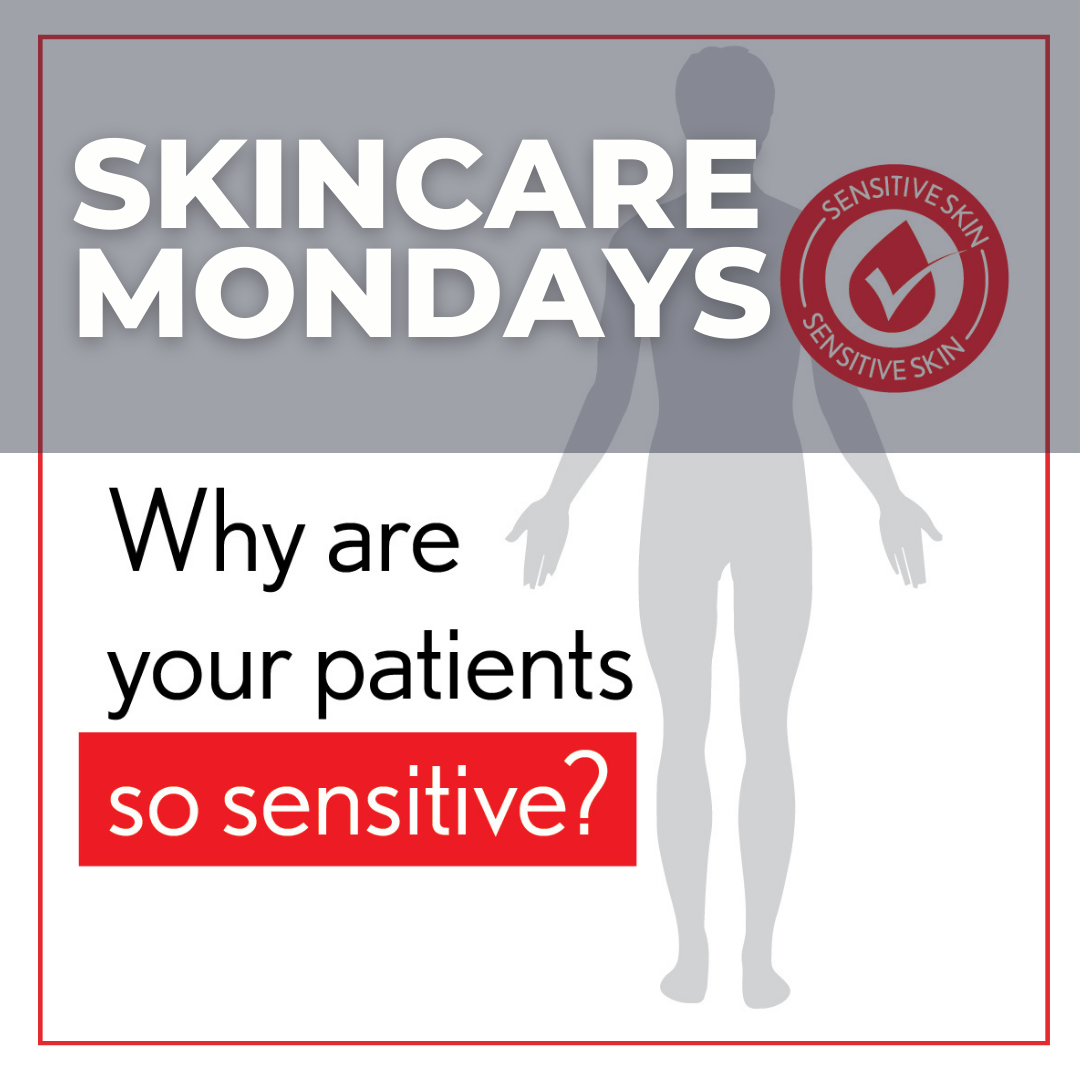Why are your patients so sensitive?
71% of adults have self-declared sensitive skin.1
While differences in how people perceive skin sensitivity exist, most say they have sensory effects, such as itching, burning, stinging, tightness and dryness.2 Due to the subjective nature of sensitive skin, diagnosis is complex and there is often a disconnect between what subjects feel and what medical professionals can observe.
As much as the symptoms and causes of sensitive skin can vary, so do product preferences and benefits sought by consumers. While it’s important to help patients identify which products are best to help relieve or prevent sensitivity symptoms, patient adherence to a recommended regimen could also hinge on their preferences and priority product attributes.
New research reveals how consumers perceive their sensitive skin and their preferences for treatment
For decades, scientists for Aveeno® have researched sensitive skin states and developed formulas that are efficacious and aesthetically preferred. To expand their holistic understanding of self-declared sensitive skin, an online survey of 1000 participants (800 females, 200 males, aged 18-65) was conducted among self-declared sensitive skin consumers of varying ethnicities – the majority with sensitive skin on their face and body. Data captured included the prevalence of sensitive skin, how their level of sensitivity evolved as they aged, what skin conditions respondents had been diagnosed with, their triggers and the symptoms they experience.4
Results: 4
-
- 75% of respondents described themselves as having slightly sensitive or moderately sensitive skin and described their skin type as combination or dry skin.
- 65% of respondents discovered they had sensitive skin before the age of 30
- 79% of consumers reported their sensitive skin either remained constant, or worsened over time
- Those who identified as extremely sensitive were ~200% more likely to have been diagnosed with eczema, rosacea, acne, or allergies than those who identified as slightly sensitive
- Dermatologists are the consumers second most used source of information when seeking advice for treating sensitive skin.
- Stress and ingredients were the cause of the majority of skin reactions among self-perceived extremely sensitive and very sensitive consumers
- The most common skin complaints of self-perceived sensitive skin consumers:
Itchiness 57% Dryness 57% Redness 49%
-
- Moisturization is the top remedy desired by consumers regardless of their degree of skin sensitivity.
- The top three product attributes desired when deciding which sensitive skin care product to purchase:
- Free of harsh ingredients, no harsh chemicals, no artificial colors/scents
- Leaves skin moisturized
- Is gentle/non-irritating
This study of consumer attitudes and behaviors provided meaningful insights regarding desired outcomes and product preferences of consumers with self-declared sensitive skin.
 CLICK ON IMAGE TO ENLARGE AND DOWNLOAD
CLICK ON IMAGE TO ENLARGE AND DOWNLOAD
For additional resources and products that can help you and your patients, visit AveenoMD.com
References:
-
- Chen W, Dai R, Li L. The prevalence of self-declared sensitive skin: a systematic review and meta-analysis. J Eur Acad Dermatol Venereol. 2020 Aug;34(8):1779-1788. doi: 10.1111/jdv.16166. Epub 2020 Jan 20. PMID: 31869523.
- Farage MA. The prevalence of sensitive skin. Front Med (Lausanne). 2019;6:98
- Draelos, Zoe Diana. “Sensitive skin: perceptions, evaluation, and treatment.” American journal of contact dermatitis2 (1997): 67-78.
- Neadle SA, Wurst JC, Montgomery S, Patton A, Pray D, Rascoe O, Cox C. I’m Sensitive! Understanding the Patient Experience of Self-Reported Sensitive Skin. Journal of Investigative Dermatology Annual Meeting, May 18-21, 2022, Portland, Oregon.
Did you enjoy this article? You can find more on our OTC Resource Center.

